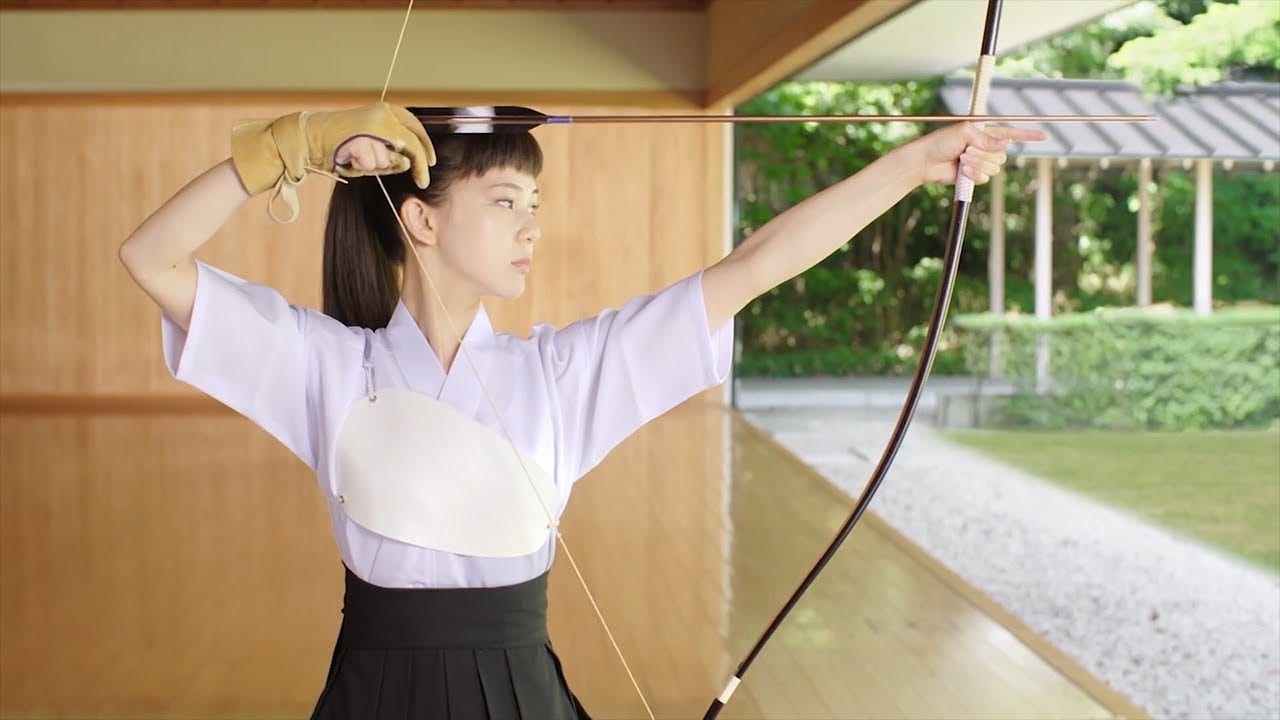Steph Balzer | April 10, 2025
The Archery Edition
On letting go, beginner magic, and Zen Buddhism.
Steph Balzer (SB) publishes Cento, and has written a number of great WITI editions, including The Emotional Language Edition and The Organizing Edition.
Steph here. Arthur C. Brooks recently wrote in The Atlantic about the art of letting go, through the lens of Archery. Woven throughout the piece is the story of German professor Eugen Herrigel, who in 1924 set out to study Zen Buddhism in Japan. Because Herrigel lacked the language proficiency to apply himself as a student of Zen philosophy, he was required to learn a skill—kyūdō, or the way of the bow: “This would indirectly impart the Zen truths that he sought.”
Why is this interesting?
I became a serious student of archery in 2012. In January of that year, my writing partner and close friend died from complications of cystic fibrosis, and I found myself adrift. Writing was something we held between us, and I didn’t want to write, didn’t believe I could write, on my own. In this state of complicated grief, I wondered what else I might do with my life?
During the subsequent months, I spent hours at Robinson Archery in Tucson. If I timed it right, I could have the indoor range to myself, or nearly so. I would shoot a round of a dozen arrows, saunter down to the targets to retrieve them, then begin again. Remembering it now, I can still feel my stance, the bow in my hand; the draw, the release. “Shoot every arrow as though it’s your first,” was the advice one of my archery buddies gave me whenever I’d become frustrated or too attached to my successes and failures. (In turn, I gave him recommendations on curtains for his living room.)
I used to tell friends who found my newfound obsession curious that archery was akin to practicing yoga, but with people who would never set foot in a hot studio. My archery buddies accepted me despite my being a writer, a woman, and a “university person.” To them, I was just one of the guys—a middling shooter, but dedicated and easygoing.
Eventually, as a regular, I got a key to the range and could practice when I wanted. I competed in the amateur archery league too, which runs a lot like a bowling league. But this eventually changed the nature of my practice. While still fun, it meant I had obligations to teammates, late nights, and the pressure to perform. We had each others’ phone numbers. The sport became a responsibility at a time when I only wanted to feel anonymous and free.
Brooks argues that you do not have to become a student of archery to learn the way of effortless effort, but I also suspect there’s something to the visceral experience of learning a skill, or developing an amateur practice—whether it’s singing in a choir, or mountain biking, or slinging arrows—that builds the so-called muscle memory of letting go. It’s good to be a beginner at something. (SB)
